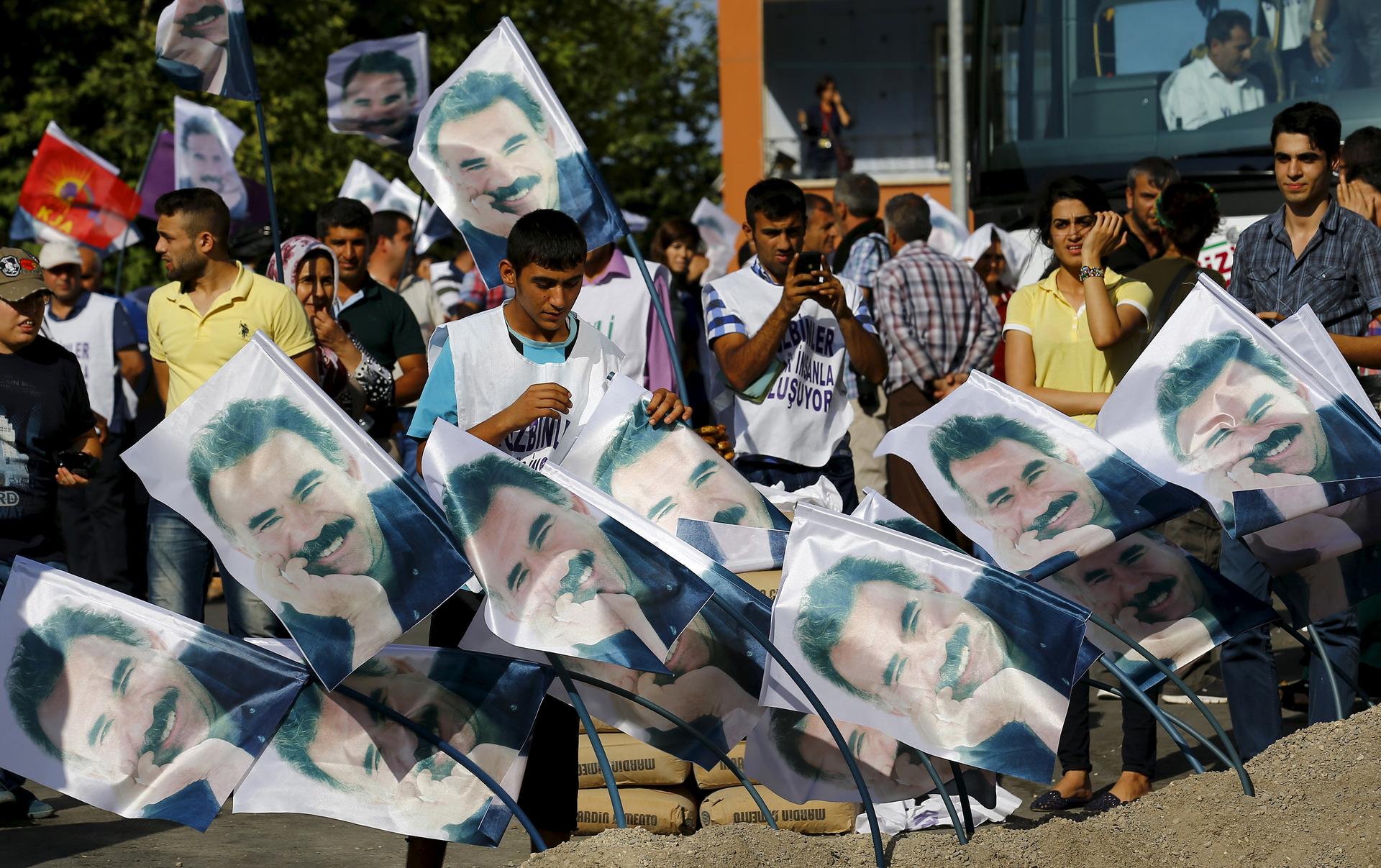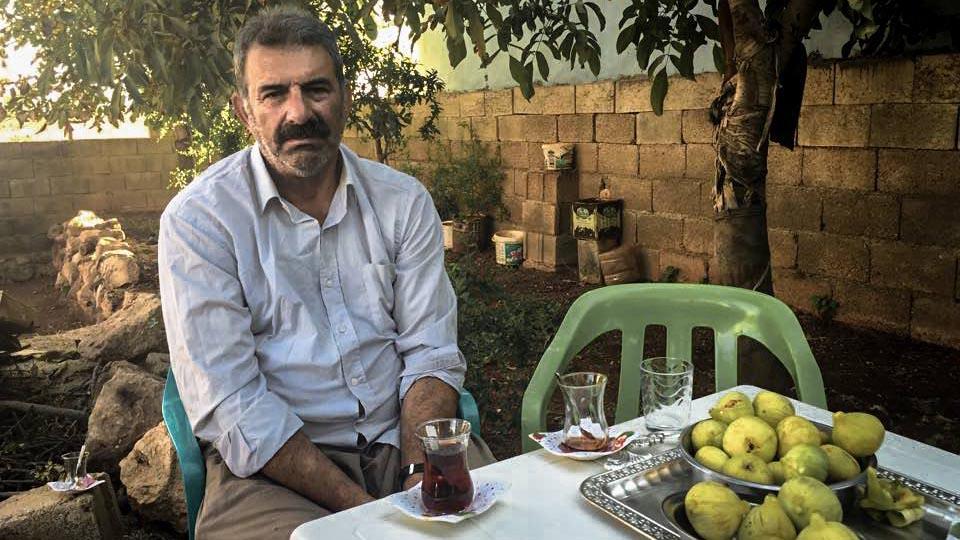Mehmet Ocalan, brother of Kurdish leader Abdullah Ocalan, who's been in jail since 1999. Ocalan heads the PKK, a Kurdish militia considered a terrorist organization by the Turkish government.
There little question that Turkey is a mess these days. The government in Ankara had avoided getting involved in the fighting next door in Syria, and it had maintained a two-year ceasefire with a Kurdish rebel group called the PKK.
But now the Turkish government — especially its air force — is finding itself fighting against both the Kurdish group and ISIS-inspired Islamic insurgents.
Perhaps no one examplifies the sad state of affairs more than Mehmet Uyar.
Just a few days more, and he would have been done. Gone. Like every police officer, Uyar had to serve in the eastern part of Turkey. Because of its history of Kurdish insurgency, the region is considered dangerous — and officers have to take turns.
Mehmet's time was up on August 1. He’d spent five years in Cinar, a small Kurdish town far from his home on Turkey’s western coast. He was about to be redeployed, and become a father.
Instead, last week he became another victim in a series of attacks targeting security forces
“He was sipping tea with my uncle on Wednesday evening” says Seyhmus Caran. “A man with a balaclava came out from the opposite street and shot at them, killing both."
At least 17 policemen and soldiers have died in shootings or car bombs over the past two weeks. Some of the attacks have been claimed by Kurdish militants. Others have been murky. Either way, the killings remind people here of the 30-year civil war between Turkey and the Kurdish militia, the PKK.
The folks here in Cinar say things had been peaceful until last month. One man says, "It’s even worse than the 1990s, because in the 90s you knew who was going to attack you, but now you don’t know who's fighting who."
At the height of Kurdish insurgency, the state battled the PKK. There was more or less a good guy and a bad guy, depending on which side you were on. Now, there’s ISIS, hell-bent on fighting with everyone.
Two weeks ago, a Turkish jihadist blew himself up, killing 32 at a youth rally near the Syrian border. For the first time, ISIS claimed responsibility for an attack on Turkish soil — in a Kurdish town.
Kurds blamed Turkish authorities for letting Islamic State militants loose. And two days after the ISIS bombing, the PKK broke its two-year ceasefire, killing two police officers.

Turkey struck back at both groups with airstrikes. Some hit ISIS positions in Syria. Hundreds of others targeted PKK bases along the Iraq-Turkey border.
Turkey's quick and forceful attacks against the PKK anger locals who see airstrikes as a disproportionate response.
In the neighborhood of Fiskaya on the edge of Diyarbakir, some gear up for the return of an all-out civil war. In the day, men at a coffeehouse play Okey, a game of tiles. At night, one man says, a more violent game takes place: Kurdish demonstrators take to the streets; police show up in force.
"They (The police) don’t just use tear gas or water cannons!" complains one man. "Especially in the past few weeks, they are using weapons against us. Sometimes our friends get injured. You’re asking us how we answer these attacks… Well, as much as we can, we answer just the same way."
Bullet holes are visible on the walls of Fiskaya’s narrow streets. And every bit of graffiti is a call to arms.
There are some Kurds here, though, who refuse to get involved until they hear from Abdullah Ocalan. He’s the founder of the PKK. Arrested in 1999, Ocalan has advocated for a peaceful solution.
Mehmet Ocalan tells me that he was last allowed to visit his brother in jail in October. That was during the battle for Kobane, in Syria, when American airstrikes helped the Syrian branch of the PKK defeat ISIS. So Washington helped the PKK in Syria, but the group in Turkey is considered a terrorist organization.
Confused? Mehmet Ocalan is, too.
“How can America support Syrian Kurds, while allowing Turkey to bomb Turkish Kurds?” Ocalan asks. “The US and Europe should force Turkey to stop. They’ve been bombing the PKK for 30 years, and that has never solved anything.”
Like scores of Kurds, Mehmet Ocalan wants to know what his brother makes of the situation now in Turkey. He has a hunch, though, about how he might feel.
“Sad,” he says. “The peace project was his, and he fought hard for it. He’s probably just as sad as we are to see his work unravel.”
